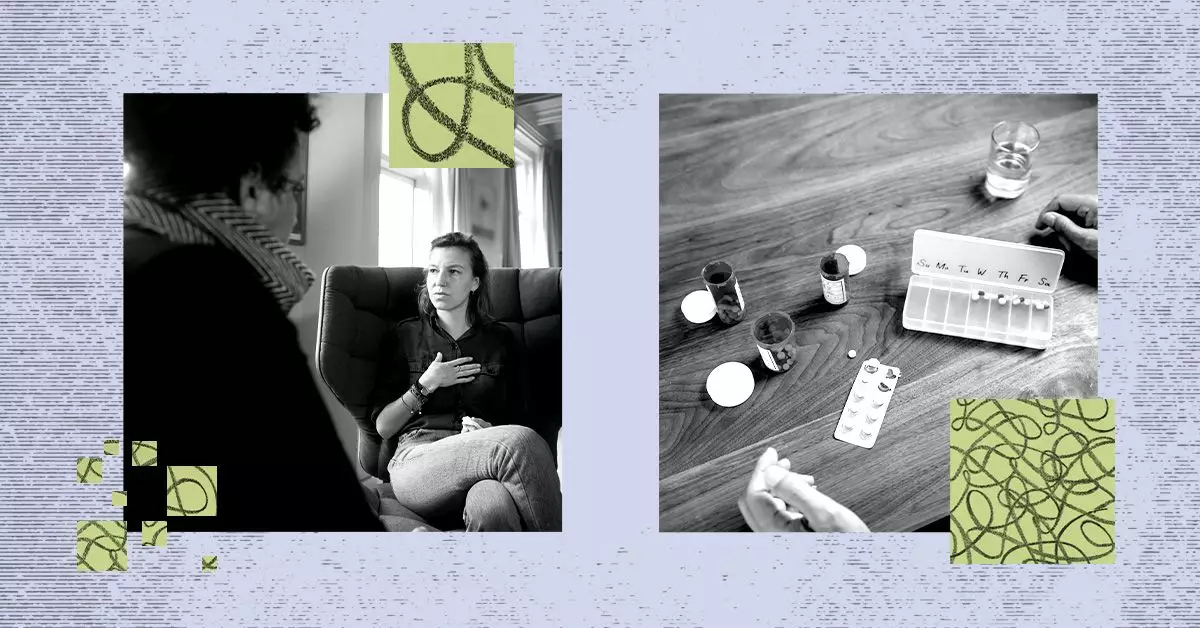Depression is a pervasive mental health disorder that affects millions across the globe. Characterized by persistent feelings of sadness, hopelessness, and disinterest in previously enjoyed activities, depression can manifest in both emotional and physical symptoms such as fatigue and sleep disturbances. Given its complex nature, the treatment of depression requires a multifaceted approach tailored to each individual’s unique circumstances. This article explores the various treatment modalities available, their effectiveness, and considerations that should be taken into account by individuals and healthcare providers.
When tackling depression, the first course of action typically includes psychotherapy, commonly referred to as talk therapy. Psychotherapy provides a safe environment for individuals to explore their feelings, thoughts, and behaviors under the guidance of a trained professional. Among the prevailing types, Cognitive Behavioral Therapy (CBT) stands out due to its focus on identifying and altering destructive thought patterns that contribute to depressive symptoms. By restructuring maladaptive thinking, CBT aims to empower individuals to adopt healthier perspectives and coping mechanisms.
Another key therapeutic approach is Interpersonal Therapy (IPT), which emphasizes the importance of personal relationships in mental well-being. IPT helps those battling depression to enhance their communication skills, build supportive networks, and manage relationship-related stressors effectively. By centering on the aftermath of interpersonal conflicts, this therapy aids in alleviating symptoms and improving one’s outlook on life.
On a deeper level, psychodynamic therapy delves into the unconscious mind to uncover hidden emotional conflicts that may be at the root of emotional distress. By exploring past experiences and unresolved feelings, psychodynamic therapy allows clients to gain insights into their behavior, ultimately facilitating healing and personal growth.
In addition to psychotherapy, antidepressant medications are a cornerstone of depression treatment. These drugs operate by altering brain chemistry to improve mood regulation and reduce the physical symptoms associated with depression. Nonetheless, it is crucial for individuals to discuss the potential benefits and possible side effects with their healthcare provider before beginning any medication regimen.
Several classes of antidepressants are available, including Selective Serotonin Reuptake Inhibitors (SSRIs), Serotonin-Norepinephrine Reuptake Inhibitors (SNRIs), Tricyclic Antidepressants (TCAs), and Monoamine Oxidase Inhibitors (MAOIs). While SSRIs and SNRIs are often the first-line treatments due to their comparatively mild side effects, TCAs can be effective for individuals with severe symptoms, albeit with a higher risk of adverse effects.
For example, mirtazapine, a Noradrenergic and Specific Serotonergic Antidepressant (NaSSA), offers an alternative mechanism of action and may be beneficial for those who do not respond optimally to typical antidepressant therapies.
As the understanding of depression evolves, so too does the range of available treatments. Techniques such as light therapy have gained recognition, particularly for Seasonal Affective Disorder (SAD), harnessing exposure to specific wavelengths of light to improve mood. Similarly, brain stimulation therapies like Electroconvulsive Therapy (ECT) may be recommended for individuals experiencing treatment-resistant depression, showcasing a more intensive approach aimed at restructuring brain activity patterns.
Complementary practices, including relaxation techniques and lifestyle modifications such as exercise and diet changes, are also integral to an effective depression treatment plan. Mindfulness and stress-reduction strategies provide individuals with tools to manage their symptoms and improve their overall quality of life.
Ultimately, finding the most appropriate treatment for depression can be a journey of trial and error. Individuals should remain open to exploring various methods while engaging in ongoing dialogue with their healthcare professionals. Regular follow-ups are essential to effectively assess treatment efficacy and make necessary adjustments.
It is crucial for individuals undergoing treatment to communicate any discomfort or lack of improvement in symptoms. No single treatment suits everyone; therefore, a collaborative approach to mental health care can enhance the likelihood of recovery. As research continues to reveal new insights into depression, the hope is that individuals will find customized, effective paths toward healing and reconnecting with their lives.

